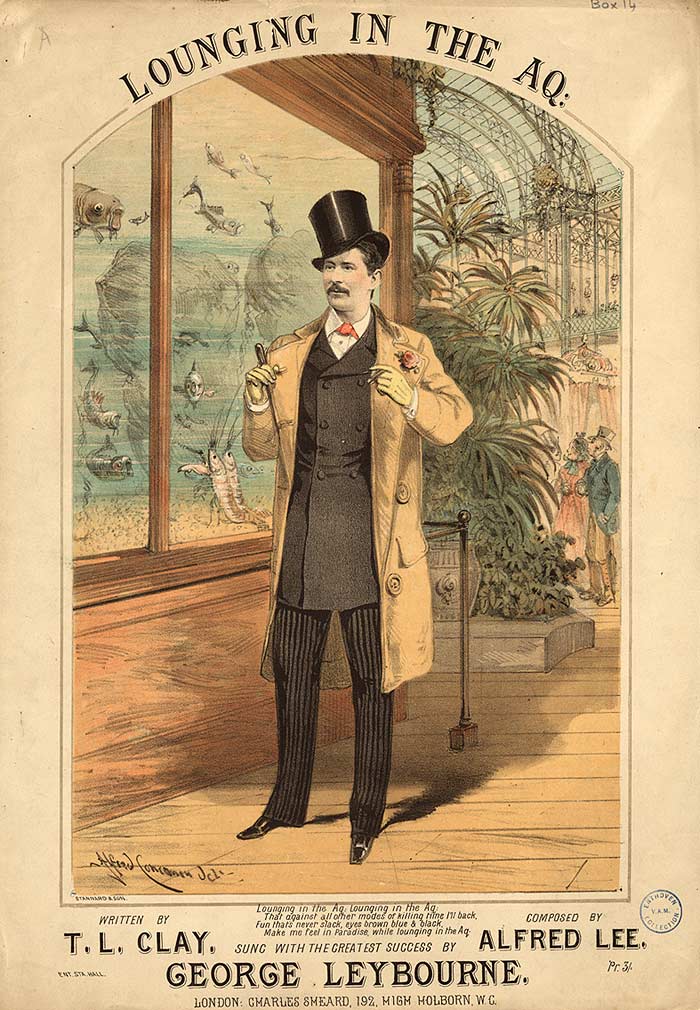Lion Comique on:
[Wikipedia]
[Google]
[Amazon]
 The ''lion comique'' was a type of popular entertainer in the Victorian
The ''lion comique'' was a type of popular entertainer in the Victorian
 The ''lion comique'' was a type of popular entertainer in the Victorian
The ''lion comique'' was a type of popular entertainer in the Victorian music hall
Music hall is a type of British theatrical entertainment that was most popular from the early Victorian era, beginning around 1850, through the World War I, Great War. It faded away after 1918 as the halls rebranded their entertainment as Varie ...
s, a parody of upper-class toffs or "swells" made popular by Alfred Vance
Alfred Glanville Vance (born Alfred Peck Stevens; 1839 – 26 December 1888), often known as The Great Vance, was an English music hall singer, regarded as "one of the most important of the early music-hall performers".
Biography
Vance was born ...
and G. H. MacDermott, among others. They were artistes whose stage appearance, resplendent in evening dress (generally white tie
White tie, also called full evening dress or a dress suit, is the most formal evening Western dress code. For men, it consists of a black tail coat (alternatively referred to as a dress coat, usually by tailors) worn over a white dress shir ...
), contrasted with the cloth-cap image of most of their music-hall contemporaries.
According to Michael Kilgarriff, it was J. J. Poole, manager of the South London Music Hall, who first described the performer George Leybourne as "a Lion of a Comic". Victorian fashion then led to the use of the French words, ''lion comique'', which in turn became a generic term for all performers with an imposing appearance and personality.Michael Kilgarriff, ''Grace, Beauty and Banjos: Peculiar Lives and Strange Times of Music Hall and Variety Artistes'', Oberon Books, 1998, , p.158
The songs the ''lions comiques'' sang were "hymns of praise to the virtues of idleness, womanising and drinking", perhaps the most well known of which is George Leybourne's " Champagne Charlie". The ''lion comique'' deliberately distorted social reality for amusement and escapism.
References
Citations
Bibliography
* * {{refend Performing arts